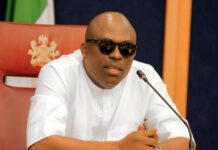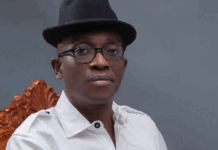By Comrade Pascal Chimezie
In his Democracy Day national broadcast, President Bola Ahmed Tinubu said, “We (that is Nigerian Government) have negotiated in good faith and with open arms with organized labour on a new national minimum wage. We shall soon send an executive bill to the National Assembly to enshrine what has been agreed upon as part of our law for the next five years or less.”
The President was not forthcoming on “what has been agreed upon” with labour. The tripartite committee on the National Minimum Wage concluded its meetings on Friday, June 7, without a clear and definite agreement on a specific amount as new minimum wage with Labour. Whereas the federal government and the organized private sector had agreed on N62,000, organized Labour insisted on N250,000 as new minimum wage. The Governors’ forum maintained that any minimum wage higher than N60,000 was not sustainable. So, what is the agreement President Tinubu was talking about?
Labour was quick to debunk the President’s claim. Prince Adewale Adeyanju, Acting President of NLC, in a statement, said the President obviously was “misinformed” regarding the outcome of the wage process. He, however, urged President Tinubu to consider favourably, Labour’s N250,000 proposal. This is not likely to happen. Remarks from the President himself do not, in fact, give any hope that Labour’s request would be honoured.
Speaking on Wednesday night at the State House Conference Center, Abuja, during the 25th Democracy Day Anniversary dinner, Tinubu said, “The federal government will only pay the minimum wage it can afford. The country will cut its coat according to its cloth.” True. But what is the actual size of our country’s cloth? Are there those sewing and wearing oversize already, as we speak, from the same cloth? Should only the Nigerian workers be meant to wear strait-jackets from the remnant pieces of the cloth?
If this is what all the negotiation has come down to, that is to say, an arbitrary position on what should or should not be paid by a party, and not based on a consensus understanding and agreement, then the whole negotiation is a failure. The entire six months or thereabouts of the motion-without-movement discussions are wasted precious times and efforts. And, contrary to President Tinubu’s claim, there was no “good faith” accompanying the negotiations abinitio.
What does it really take to arrive at a mutually acceptable national minimum wage for workers? Why must issues about workers’ pay and welfare always be subject to, “You gree? I no gree!”, dingdong?
The tripartite committee to negotiate with the Labour on new minimum wage was set up in January 2024. No sooner it was inaugurated than an alleged memo started making the rounds that #billions of naira had surreptitiously been approved for the committee’s sittings. Government, in its characteristic way, denied it flat. The question is, if you are willing to spend billions on the sitting allowances of just a few committee members, how much will you be willing to pay for the welfare of your workforce, the backbone of your country’s productive sector?
The argument, by Nigeria’s political class that has captured all states’ resources, dispensing them according to its whims and caprices, that the country could not afford to pay decent wages for its workers is not only trite, shameful, embarrassing and provocative, it is also unreasonable, immoral and wicked. It is a story best for the marines and should not be repeated in the land. It smacks of lack of sincerity and empathy for government that plunges its citizens to an unbearable economic hardships to continue to dilly dally on ameliorative measures and commensurate pay for its struggling workforce.
Yet, it is the same government which went about recently and increased the salaries of judges by 300% within days without judges downing tools. Why was the case of judges’ salary of such higher importance and urgent than the workers in the country? What is good for the goose is equally good for the gander.
Since May 29, 2023 when government suddenly removed subsidy on petroleum products and floated the naira, many Nigerians have been subjected to untold hardships.
If one can grant any concession to the government with regards to the earlier labour proposed figures of #615,000 and #450,000 it will not be to say that the figures are unrealistic on a good day for an average family, but to say that in an economy that has been serially bastardised almost to a state of stupor by our irresponsibile political class, the amounts above might not be too ideal. I strongly believe workers deserve not just their pay, but a descent living wage and a good working environment.
Is government waiting for another round of Labour’s strike before something definite and urgent is done to bring about a consensual agreement on the new minimum wage?
Recall that Secretary of Government of the Federation (SGF), George Akume, penultimate week, had accused the leadership of the organized Labour of treason by shutting down the national grid during the nationwide strike, and plunging the country into two days of darkness. “Nowhere in the world has labour ever tampered with the national grid. It is treason. Treasonable felony is economic sabotage; you don’t do that.” He fumes, as he received members of the National Executive Council of the Christian Association of Nigeria, CAN, in Abuja. Interesting. But if truth be told, the national grid has suffered collapse countless times since privatization.
According to “Premium times” report since November 2013 when the federal government privatised all power generation and 11 distribution companies in Nigeria, with the federal government retaining the ownership of the transmission company for efficiency in the sector, “the grid has collapsed more than 140 times.” In the 1st quarter of this year 2024 alone, the national grid has collapsed not less than three times. Certainly, Labour is not responsible for the 140 times collapse of the grid.
Be that as it may, Labour replied the SGF that it was indeed the looters of the treasury, who made it impossible for government to pay its workers living wage because they have emptied the treasury. Who deserved to be accused of commiting treason? It is often said that any forest that does not permit the presence of basket should first ensure it does not grow mushrooms. Because if it does, it’s bound to be visited with different kinds/types of basket, waived in different styles. But these arguments are not needed at this point in time. They are diversionary, and meant to distract from focusing on the current issue at hand, which is fixing a living wage for the suffering workers.
While I agree with government that strikes are not good at all for our fragile and tottering economy, and that Labour should rarely, if ever, use it, it should only be as a last resort.
Ironically, Labour more that any organization is the most averse to strikes as a means to being heard. It will do and indeed does everything in its power to stave off the strike option because of the enormous toll it takes on their structures.
Strikes are ill-wind. It blows no organization or country any good. It must be avoided at any cost. But that should not be to indulge any irresponsible, unresponsive and insensitive government. If government is proactive enough and alive to its constitutional responsibility, and discharges the same, as at when needed, without much prompting, certainly there will be no need for any restiveness or industrial disharmony, necessitating nationwide strikes. There will be no need looking for any piece of legislation to quote to charge anybody for treason or terrorism.
Curious enough, and far from being reassuring, the President made some subtle allusion to arrest of labour leaders during his nationwide broadcast when he said, “In the face of labour’s call for a national strike, we did not seek to oppress or crack down on the workers as a dictatorial government would have done. We chose the path of cooperation over conflict. No one was arrested or threatened. Instead, the labour leadership was invited to break bread and negotiate toward a good faith resolution.”
Had government been contemplating arresting labour leaders, particularly for allegedly switching off the national grid during the strike? Was the SGF letting us into what has been transpiring in the inner recesses of the government? Labour leaders need to discern the message properly; because, as it’s often said in the Labour parlance, in the jungle, there’s no true friend.
In the first place, Electricity workers belong to the National Union of Electricity Employees (NUEE). This Union is an affiliate of the Nigeria Labour Congress (NLC). The workers are not an island in the midst of the sea. In this country, we have seen the police go on strikes.
Strike still remains a legitimate instrument and inevitable option for oppressed working class people. We must look at what makes strikes imperative and inevitable. Everyone though agrees strikes should be the option of last resort. It is, nevertheless, advisable that Labour-related issues must not be allowed to degenerate to the level of a strike. While the government is busy looking for enemies outside, it should remember the old African saying that when you are pointing a finger at someone, the remaining four finger might be pointing at you. Let those who govern today remember that there is always the day after. This government ‘s failures are what is haunting it. It should brace up to meet up with the present challenges. There is every indication to show that Labour will be ever willing to collaborate with the government to meet national objectives once the government begins to get it acts right. Victimization, harassment, or intimidation will not help it. The Nigerian workers will outlive this administration and subsequent administrations..
Comrade Pascal Chimezie is a Labour, Pro-democracy and Human Rights Activist, and Public Affairs Analyst. He writes in from Lagos. He can be reached via email @ [email protected]
























